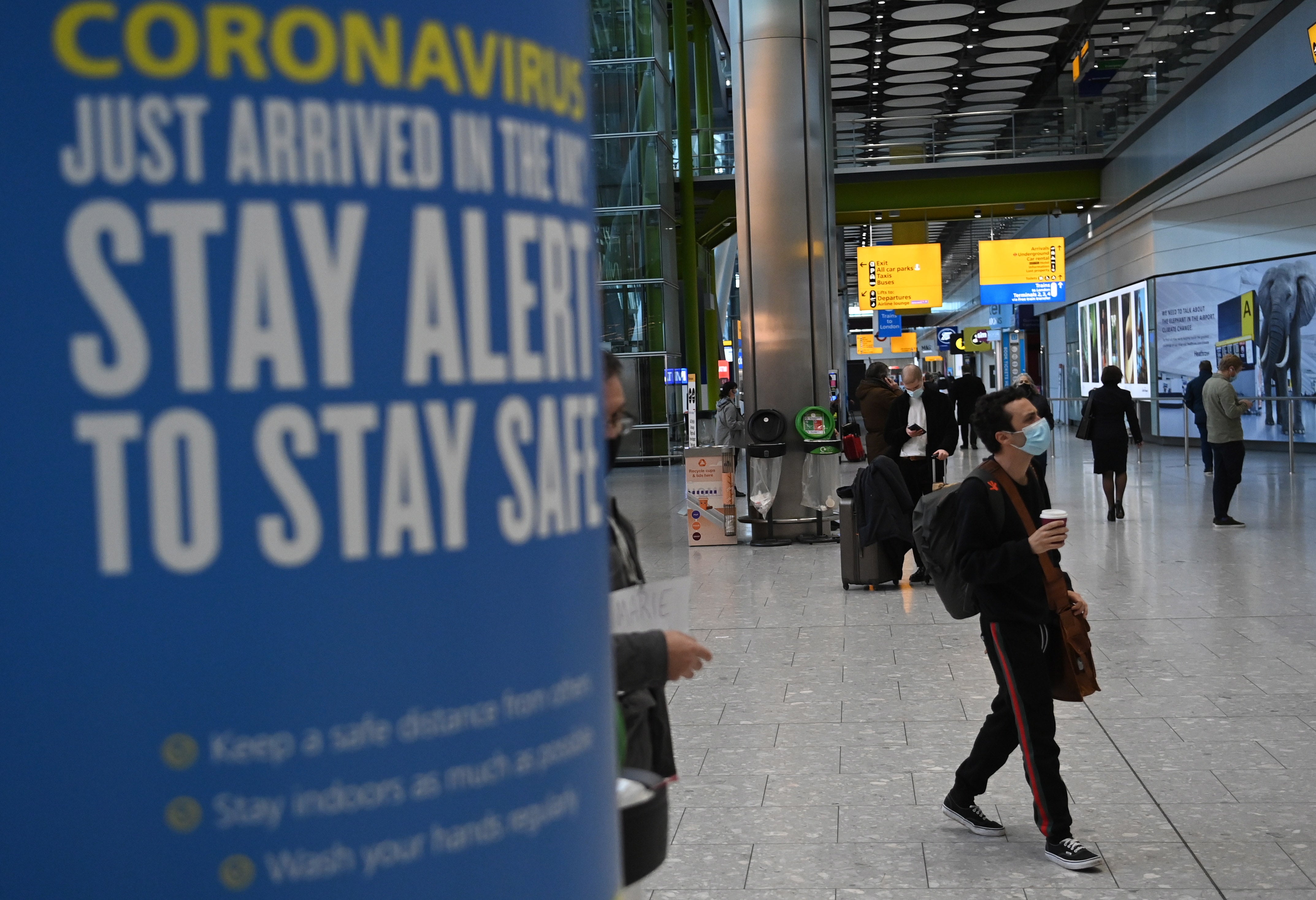Covid: UK infection R rate sticks between 1.2 and 1.3 and new variant ‘growing much faster’, says Sage
Public should ‘remain vigilant to keep this virus under control’, say scientists

Your support helps us to tell the story
From reproductive rights to climate change to Big Tech, The Independent is on the ground when the story is developing. Whether it's investigating the financials of Elon Musk's pro-Trump PAC or producing our latest documentary, 'The A Word', which shines a light on the American women fighting for reproductive rights, we know how important it is to parse out the facts from the messaging.
At such a critical moment in US history, we need reporters on the ground. Your donation allows us to keep sending journalists to speak to both sides of the story.
The Independent is trusted by Americans across the entire political spectrum. And unlike many other quality news outlets, we choose not to lock Americans out of our reporting and analysis with paywalls. We believe quality journalism should be available to everyone, paid for by those who can afford it.
Your support makes all the difference.The R value of coronavirus transmission in the UK is currently between 1.2 and 1.3, the Scientific Advisory Group for Emergencies (Sage) has said.
This figure, which is based on data up to the 11 January, is in line with last week’s estimated R rate of between 1 and 1.4.
At the current rate of transmission, every 10 people infected will pass the disease on to another 12 or 13 people.
The virus’ daily growth rate, provided by the Scientific Pandemic Influenza Group on Modelling (SPI-M), a sub-group of Sage, is now somewhere between 2 and 5 per cent in the UK.
On Friday, Sage urged the public to remain cautious against the virus, saying: "The latest figures show that we need to remain vigilant to keep this virus under control, to protect the NHS and save lives.
"We all need to play our part, and if everyone continues to follow the rules, we can expect to drive down the R number across the country."
The warning comes as Downing Street said scientists at the Porton Down research facility were investigating the new Brazilian variant of the virus, which has now been detected in the UK and which is thought to be highly transmissible.
A spokesperson for No 10 said: “As with some of the other variants we've seen, the Kent variant and the South Africa variant, evidence does suggest that it may be more transmissible.”
“More research is required to confirm this and Porton Down will conduct that research but current evidence does not suggest that the strain causes any higher mortality rate or that it affects the vaccines or treatments,” they added.
In response to the new variant, the government banned air travel from a swathe of South American countries, including Brazil, from early Friday morning.
Flights from Portugal were also barred under the new travel restrictions, with transport secretary Grant Shapps explaining that the move had been taken because of the country’s "strong travel links with Brazil”.
The arrival of the Brazil variant in the UK has led Labour to complain that the government has been too slow to introduce stricter measures at the UK’s borders.
The criticism concerns the delay of the government’s requirement that every traveller must show proof of a negative test result before travelling to the UK. The rule was scheduled to start on Friday, but it was delayed to Monday because ministers had not published the guidance in time.
Speaking on Thursday, Yvette Cooper, chairwoman of the Commons Home Affairs Committee, called the delay "truly shocking".
On Friday, her colleague Nick Thomas-Symonds, the shadow Home Secretary, said that the detection of the Brazil Covid-19 variant was alarming and was yet another sign of the Conservative’s mishandling of the pandemic.
“The utter chaos around airport testing, travel restrictions and quarantine is the fault of the government. They have no proper strategy in place and this incompetence is putting lives at risk,” he said.
Join our commenting forum
Join thought-provoking conversations, follow other Independent readers and see their replies
Comments